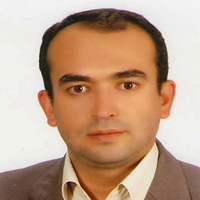Deconstructing and going far beyond the binary oppositions in Sufi texts (data from Persian prose books)
The researchers of mysticism and Islamic Sufism have considered the making of the language of Sufism and mystical discourse as one of the most important aspects of the history of Sufism. Especially the gradual differentiation of the language of Sufism from the language of religion and its transformation into an independent discourse has been the subject of valuable researches. The researchers have demonstrated that mystical experience and Qur'anic interpretation are inseparable at first and the language of mystical experience merely uses Quranic words, but gradually, mystical experience becomes independent and adopts the Qur'anic language/language of religion and acquires its very own language. One of the lexical features of the language of Qur'an/religion is the use of binary opposition. Binary oppositions such as Paradise/Hell, Good/Evil, this world/the Hereafter among the basic religious and Quranic teachings and are used with high frequency in Sufi texts. The use of binary oppositions in Sufi texts goes far beyond religious binary opposition, and especially in Sufi textbooks, many new terms are formed based on binary opposition.One of the distinguishing aspects of the language of Sufism is the deconstruction of binary oppositions. The deconstruction is applied both in the binary oppositions of religion and in the oppositions formed in the language of Sufism. It has various and different forms and aspects, and its analysis may provide us with the most creative and innovative aspects of Sufis' worldview and mystical experience. This linguistic invention, which is rooted in the novelty and uniqueness of mystical experience, is a sign of the authenticity of that experience. In this research, we have investigated the deconstruction and departure from binary opposition in a corpus including the most creative words of the Sufis in Persian prose texts. By analyzing and classifying the different forms of the deconstruction and going beyond the binary opposition, the article shows how this feature grants the language of Sufism a special artistic and poetic characteristic, and places it in a completely different level compared to religious texts and the language of Shariat. Going far beyond the binary oppositions is closely related to the paradoxical feature of the language of Sufism and provides the possibility of expressing more complex experiences for Sufis.
-
Studying the adaptive methods from archaic non-fiction texts for teenagers in three plays by Shokrekhoda Goudarzi
Naser-Gholi Sarli, Habibalah Abbasi, Jamileh Sanjari*, Esmat Khoeini Ghezeljeh, Behrooz Mahmoodi Bakhtiari
Iranian Childrens Literature Studies, -
Demarcation the Term Collective Narrative: Investigating the Role of Narrative Agent in the Shared Concepts
Nastaran Shahbazi *, Hossein Bayat, Mohamad Parsanasab,
Journal of Contemporary Persian Literature,


